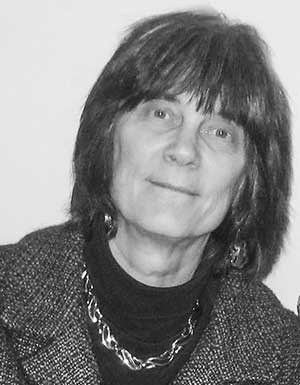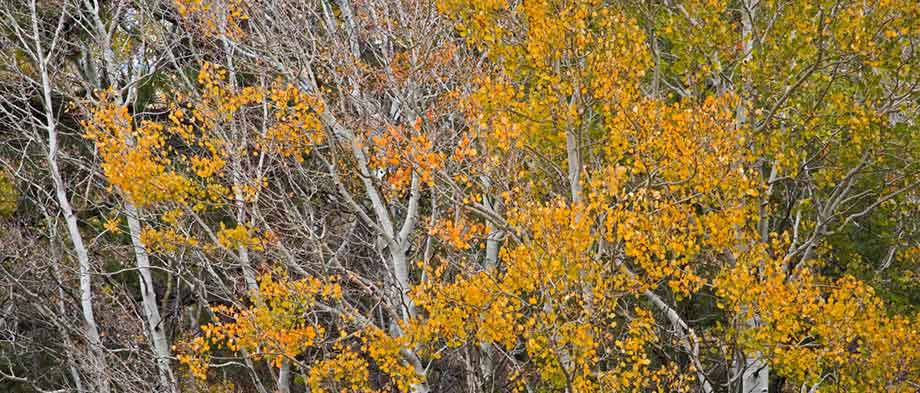SageGreenJournal.org voices out of the West, mostly poetry, personal to planetary...
Emily Grosholz
Emily Grosholz is a poet who teaches philosophy and poetry at the Pennsylvania State University, and has been an advisory editor for the Hudson Review for over thirty years. The Stars of Earth: New and Selected Poems was published in 2017 by Word Galaxy / Able Muse Press, with drawings by Farhad Ostovani. Her earlier book of poetry, Childhood, published by Accents Publishing with drawings by Parisian artist Lucy Vines, has raised over $3,500 in the past year for UNICEF from sales of the book. A Japanese translation by Atsuko Hayakawa (Tsuda College) with illustrations by Chihiro Iwasaki was published in 2015, and an Italian translation by Sara Amadori (University of Bologna / Forli) was published in 2016, along with a CD, Childhood Songs, by composer Mirco De Stefani. A French translation by Pascale Drouet (University of Poitier) was published in 2017 by Lambert-Lucas, and a German translation by Ulrike Blatter is underway. During the past year or two, her poems have appeared in the San Diego Reader, Plume Poetry, the Hudson Review, PN Review and Think Journal. Her new philosophy book Starry Reckoning: Reference and Analysis in Mathematics and Cosmology, published in 2016 by Springer, won the Fernando Gil International Prize for Philosophy of Science in 2017. In November 2018, Springer published her book on poetry and mathematics, Great Circles: The Transits of Mathematics and Poetry.

Letters from a Gardner
first appeared in
The Stars of Earth: New and Selected Poems
(Word Galaxy / Able Muse Press, 2017).
Reprinted with permission.
Letters from a Gardener
(Michael Stone)
October 7
Do you wonder where I am? As the fates have it,
Those long-fingered weavers, I find myself
In the northern mountains of New Mexico.
Life suddenly came to an end in California,
At once too comfortable and dangerous,
Where lotus-eaters bloom on every corner.
Ten months ago I came to give a talk
On orchards to a group of farmers here,
And found the Bodhi needed a new gardener.
It’s taken me ten months to turn my mind
From California, but finally here I am.
Six acres on Jemez Creek, which runs between
The constellated hot springs of the canyon;
At night in the autumn air, now growing colder,
I sit beneath that other milky way
Alone, in water hotter than my blood.
The place belonged before to Benedictines,
Buildings mostly low, built of adobe;
Large community kitchen, dining hall,
Rooms for meditation, pottery workshed,
Greenhouse, orchards, and outlying fields.
All day we hear the fluid sound of wind
Through the by now half-golden aspen trees,
And lighter music of running water, winding
Only a dozen yards from where I sleep.
What has always attracted me to Zen
Is just the practice of living here and now;
Desire for another, mystic world,
Desire itself, engenders suffering,
And the iron ego is its driving wheel.
We rise at 4:15 for chanting, tea,
Stretching, meditation, and then breakfast;
Zazen again, a little time to think;
Showers, hot springs, zazen, dinner, time
To be alone; zazen and tea; lights out
As the other lights come on in the cold evening.
Write when you can. Much love to you, amiga.
October 22
You see, the Bodhi’s not a monastery,
Though we were lately visited by thirty
Japanese Rinzai monks, none of whom spoke
A word of English. They all carried cameras,
Shot rolls of film, and bought out every piece
Of the Bodhi’s American Raku pottery.
They presented our Roshi with a bronze of Kannon,
A Bodhisattva; Roshi took them around
To Taos, Santa Fe and Colorado.
Sasaki Roshi, now almost seventy,
Came to America fifteen years ago
To teach, at the request of his own teacher.
He is a rock, whose center of gravity
Roots him to bedrock. He can see right through you.
Sanzen, the personal interview with Roshi,
Must be the hardest thing I’ve ever done.
The aspen and cottonwood are blazing yellow;
The Bodhi garden is still full of flowers:
Zinnia, cosmos, hollyhock, marigold.
And fruits: Tomatoes, eggplants, carrot, onion,
Melons, cucumbers, squash (winter and summer(,
And chili peppers, soon to be hung up
As brilliant sheaves of red, in front of houses,
Cabbages and Jerusalem artichokes.
Forty fruit trees in their second winter.
We’re opening some untilled land to grow
Winter rye, first step in building soil;
The soil is mostly clay, redder than flesh.
Water comes from wells and irrigation.
I keep myself as open as I can,
Attend the discipline of concentration
Through faith that alters with despair, and hunger.
Already I’ve written too much; I just can’t say
It all in so many words. You understand;
We suffer because of what we have forgotten.
November 23
West from my window virgin mesa rises
A half-mile over the narrow Jemez valley.
My favored haunts these days are Pueblo ruins
Rising eight thousand feet above sea level.
I sit and muse in the home of juniper, cholla,
Prickly pear cactus, ponderosa,
Piñon and all the varieties of oak.
The home of rabbit, squirrel, deer and elk,
Bear, rattler, coyote, and mountain lion
Visible sometimes at my eye’s dark corner.
The sky is a deep blue, the winds are gusty,
Fast-travelling clouds will briefly mask the sun;
Warm days, cold nights, the coldest time of all
Is the still interval between dawn and sunrise.
Only the Russian olives across the river
Still hold their leaves; willow and elm stand naked;
Raccoon come down at sunset to watch and bathe,
To eat the harsh, hard fruit the ash lets fall.
The Bodhi garden’s all but harvested;
Only Daikon radish, turnip, kale,
Parsley, salsify, onions are in the ground.
I’m building compost, cleaning local corrals
And stables for manure, hauling in loads
Of leaves and wood chips from an abandoned sawmill;
Watching the fall-sown rye green the red soil
Ever so slowly, making a cover for winter;
Cleaning all the tools and machinery;
Making an inventory of bulbs and seeds.
The Jemez pueblo is holding all-day dances
For corn and harvest; we may trade some chickens
For Hopi corn, squash, melon, gourd and beans,
Chili pepper seed, and instructions for planting.
December 6
These December mornings we are greeted
By the late-rising and last-quarter moon,
Walking across the dry grass to the Zendo
Where we drink green tea, chant from the Sutras.
How did I sleep through dawn so many years?
The lowered sun comes late into the canyon;
Morning work has already begun
When light slips down the steep walls of the mesa.
Incense of burning piñon drifts from town,
A smell which belongs in essence to the pueblos,
Especially now when winter lies on the land.
Weekends a caravan of pickups and trailers
Brings wood to town, some cut on designated
National Forest lands, and some just deadfall.
Most families here have summer gardens, fruit trees,
Chickens, and burn the gathered wood for heat;
But whereas once the houses were adobe,
Pumice, stone and wood, these days they’re most
Prefab or mobile, foundations all uprooted.
The Atomic Laboratories pay good money,
And when folks go up now into the mountains
It’s in an aluminum trailer, bought on credit.
The practice of clear-cutting lumber leads
To vicious erosion over the mesa slopes;
The fishy smell of money enterprise
Wafts up the valley too, developers,
Land brokers, marketing folly, greed and waste.
We already live so well, but it is never,
For our American green-stuffed lusts, enough.
Tomorrow is the eve of Buddha’s enlightenment
Under the Bodhi tree, and so begins
A season of intensive meditation,
Daily sanzen with Roshi, and studied silence.
Here I stop writing, caught in the spirit of things,
And wish you happiness for Christmastide,
My travelling companion. Siempre, Michael

SageGreenJournal.org is a non-commercial project, an online anthology, to share a poetic vision of the land we love.
We have no permanent office although we do have deep roots in western Colorado.
You can write us at Box 160 Norwood CO 81423, or better yet, email us, by clicking
or, if you use a webmail system, write to hello (at) sagegreenjournal.org